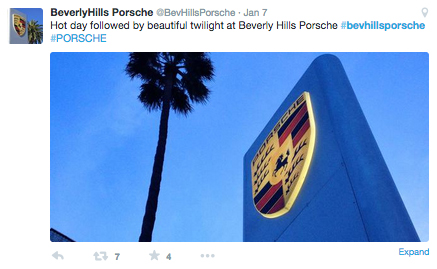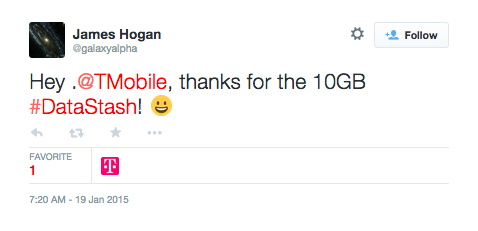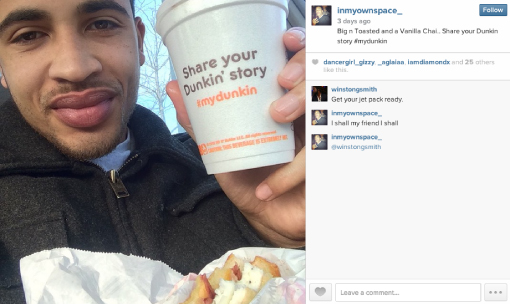
What started as a trendy writing style for Twitter users has now made its way front and center in millennial culture. Hashtags are being used all around us, including on print advertisements, television, taxis and even the streets. We probably use them a little too much (for the JT & Fallon lovers).
Of course, wherever the consumers go, the businesses will follow. The universal language known as the ‘hashtag’ is increasingly becoming a growth opportunity for marketers on social media. Hashtags are a great way to promote both your brand and marketing campaigns.
Types of Hashtags for Businesses
Brand-specific hashtags contain your business’ name or slogan. These are promoted continuously throughout your marketing collateral, and used to generate brand awareness and spread word-of-mouth for your business in general.
Campaign hashtags promote the name of a marketing campaign your business is currently running. They are promoted along with rest of your marketing collateral for that campaign.
Now that we know just how exactly your business can use the hashtag, how should you optimize them for success? Are they just a fad, or can they actually drive revenue?
How to Optimize your Hashtag
Choosing your hashtag shouldn’t take too much time. There are several ways to optimize both your brand-specific and campaign hashtags for social success:
1. Keep it simple
Try making your hashtag as short as possible – while still keeping it relevant. Shorter hashtags are easier for guests to post, and make your social media timeline impressions more readable.
Beverly Hills Porsche in Los Angeles asks customers to use #BevHillsPorsche. It’s easy for customers to type, and reads smoothly on their followers timeline for impressions.

2. Make it unique
Your hashtag should be unique within the wide world of hashtags. Using something generic like #cafe for your brand or campaign won’t generate measurable results. You have to get creative. A great tool for determining a hashtag’s popularity is hashtagify.me. Just search your desired hashtag and instantly receive a popularity percentage. A low percentage means your hashtag is rare, and you’ll be able to easily measure your success!
I noticed All Saints’ most recent Instagram campaign encourages followers to post with #HappyMondays. When I searched the hashtag, there were tons of posts that had nothing to do with All Saints, making it nearly impossible to measure results or aggregate posts.
T-Mobile recently launched their #datastrong hashtag campaign promoting their new data rollover feature. Before T-Moble’s campaign, the hashtag had barely any relevance. The data rollover feature is a big hit among their customers, and #datastrong has provided a place for customers to share their thoughts on the new feature (while T-Mobile rolls in the impressions)!

3. Promote engagement
Of course, your hashtag means nothing without promotional support. After settling on your word choice, you should advertise it throughout your business both online and in the store (both brand-specific and campaign hashtags). Promotional items can include website advertisements, traditional signage, live social media walls, digital signage, print advertisements, and social media advertising.
It’s important to keep in mind that your call-to-action should entice customer engagement. Your hashtag is completely useless if customers don’t post.
Dunkin’ Donuts’ #mydunkin campaign is a viral example of a campaign hashtag promotion. They use their coffee cups to ask customers to ‘share your Dunkin’ story,’ and the results speak for themselves!

The Benefits
So why should you put time into hashtags for your business? The question is why shouldn’t you. There are many benefits to using both brand-specific and campaign hashtags:
Increase user-generated content
The main goal of a hashtag is to promote user-generated content. When promoted correctly, brand-specific and campaign hashtags give customers a reason to share. If Dunkin’ Donuts doesn’t put ‘share your Dunkin’ story’ with #mydunkin on their cups, do those customers post? Probably not.
Hashtags also make your brand seem social media savvy. When customers see that you care about what they say on social, they will share their thoughts!
Keep the conversation in one place
How often do people post about being at a location but don’t actually post at the location’s handle? By pushing the conversation to a designated hashtag(s), you’ll be able to keep track of all the feedback surrounding your brand.
Marketing managers rejoice. You will be able to find out why customers are having a good time, and why they aren’t. Positive posts also make use for great promotional materials. Aggregate and showcase your best social testimonials!
Spread word-of-mouth for your campaign
Hashtags provide a cost-effective alternative for promoting your marketing campaigns. By getting customers to post, your are multiplying your impressions and campaign reach.
A great way to get the conversation started is by asking customers to share their thoughts using your hashtag in order to get a promotional deal. If the deal is worth 10 seconds of their time, your business will see a huge spike in exposure – can’t beat that!
In 2015, the hashtag is just about as important as your business’ name. By optimizing your hashtag and promoting it through an engaging call-to-action, you will see your interactions and brand exposure go through the roof!
